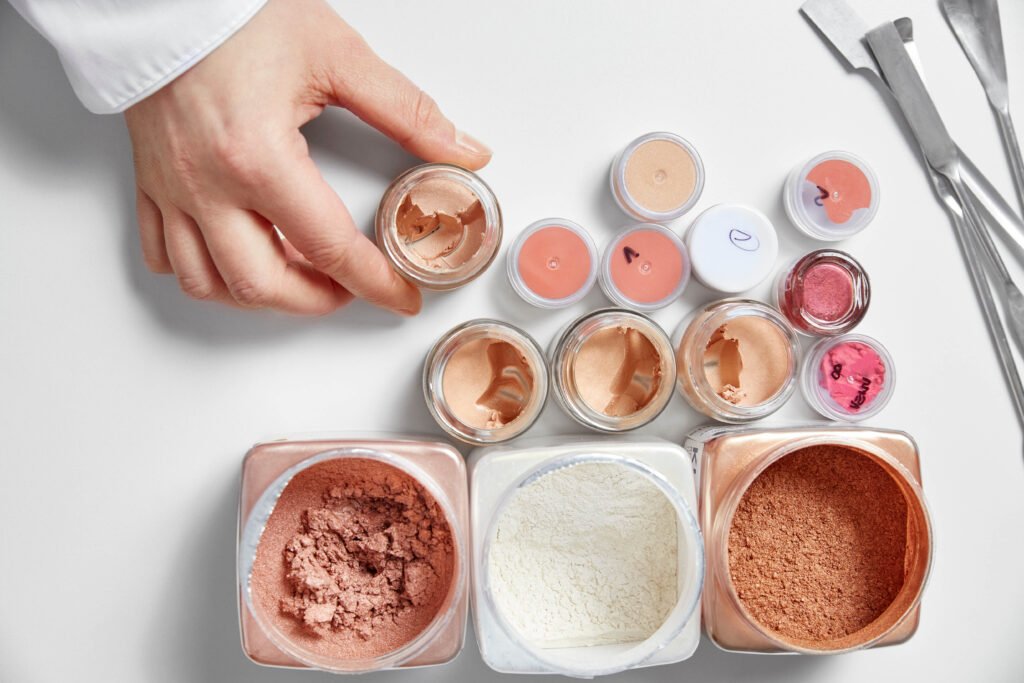The beauty industry is bursting with noise, promises, and flashy claims, making it increasingly difficult to figure out which cosmetic products are not only effective but also genuinely safe for your health. Choosing the wrong formula can have long-term consequences for your skin, from irritation and sensitivity to more lasting damage. That is why, with insights from Joanna Ryglewicz of custom formulation and private label skincare manufacturer NISHA, we want to help you navigate this crowded market and make confident, well-informed decisions.
Trustworthy brands will proudly highlight their dedication to the factors we’re about to discuss. Paying attention to these signals will give you clarity—and peace of mind—when bringing new products into your daily routine.
The Hidden Dangers of Controversial Ingredients
One of the first aspects to examine when choosing a cosmetic is whether it contains controversial preservatives, synthetic additives, or artificial fragrances. While applying such a cream or serum once may not cause immediate harm, the problem lies in repeated, long-term exposure.
Preservatives like parabens or formaldehyde-releasing agents are often used to extend shelf life, but research has raised concerns about their potential to disrupt hormonal balance or trigger allergic reactions. Synthetic colors and fragrances, though appealing to the senses, are among the most common causes of irritation, redness, and contact dermatitis.
Over time, the skin barrier can become weakened, making it more vulnerable to environmental aggressors and accelerating premature aging. In some cases, prolonged contact with certain synthetic chemicals can even lead to chronic sensitivities, meaning that products you once tolerated become problematic later in life. This is why it pays to carefully read ingredient lists, opting for formulas that prioritize gentle, non-irritating alternatives—because prevention is far easier than repairing damage already done.
The Science Behind Credible Testing Methods
When evaluating the credibility of a cosmetic product, it is crucial to look at the type of tests it has undergone. Many brands rely on declarative studies, where a small group of participants is asked to self-report their impressions after using the product. While this type of feedback can capture personal experiences, it is far from scientifically rigorous. Subjective responses are easy to influence through expectations, marketing language, or even the participants’ moods at the time.
In contrast, instrument-based testing relies on precise dermatological equipment to provide objective, quantifiable data that cannot be swayed by personal bias. A corneometer measures skin hydration with high precision, showing whether a cream actually increases moisture levels. A cutometer evaluates elasticity by gently suctioning the skin and calculating its ability to return to shape, providing clear evidence of anti-aging effects. Spectrophotometers can measure pigmentation changes to track brightening or anti-spot efficacy, while profilometry captures fine lines and wrinkles in three-dimensional detail.
Unlike self-reported impressions, such methods leave little room for ambiguity—they either demonstrate measurable change or they don’t. Although these tests are more expensive and time-consuming, they deliver reliable insights into a product’s real effectiveness and safety profile. When a brand is willing to invest in this level of research, it signals transparency and quality. For consumers, seeing mention of instrument-based testing is a strong indicator that the product has moved beyond marketing claims into proven dermatological performance.
Innovation Meets Tradition: The Power of Concentrated Actives
The evolution of skincare means today’s most effective products often combine the wisdom of tradition with the power of innovation. While tried-and-tested ingredients like niacinamide or vitamin C remain popular, new discoveries—whether lab-cultured botanicals, biotechnology-derived peptides, or exosome complexes—are constantly reshaping what’s possible for skin health. Modern science now makes it easier to harness nature’s potential in more targeted, stable, and bioavailable ways than ever before.
When choosing cosmetics, look for brands that are transparent not just about what goes into the formula, but how much: the concentration of active components determines whether a product really delivers results. For instance, vitamin C is most effective at concentrations between 8% and 20%, while higher amounts can risk irritation with little added benefit. With actives like retinol or lactic acid, there are also recommended strength ranges that balance efficacy and comfort.
It pays to research what concentration is considered ideal for the ingredient in question—this information is often available in reputable ingredient guides online. If the dose is only symbolic, you may not see the benefits promised in the marketing. Meanwhile, the best brands often highlight their use of rare or next-generation actives, proving a commitment to both results and safety.
The Gold Standard: Testing for Sensitive Skin
In today’s skincare landscape, ensuring a product is safe for sensitive skin has become both an industry trend and a mark of advanced formulation. Sensitive skin is more reactive to external factors, which means even a high-quality product must undergo stricter, carefully designed testing protocols.
Leading brands now subject their formulas to comprehensive dermatological tests specifically including people with sensitive, allergic, or atopic skin. Typical protocols include repeat-insult patch testing, where products are applied under occlusion to volunteer panels (often including individuals known for heightened skin reactivity), followed by expert assessments for redness or swelling.
Accredited seals—such as Sensitive Skin or HypoSense—demonstrate that a product has cleared these intensified requirements, and their presence on packaging is increasingly highlighted as a unique selling point. Not only does this provide peace of mind, but it signals that the brand is investing in rigorous, ethical, and science-backed safety standards.
As awareness of sensitive skin conditions grows, trustworthy companies are quick to showcase testing results and transparent data, making these claims more than just a marketing buzzword—they represent a genuine commitment to skin health.
Making Informed Choices in the Beauty Maze
Choosing effective and safe cosmetics no longer has to be a guessing game. By focusing on the absence of controversial preservatives, demanding robust instrument-based and dermatological testing—especially for sensitive skin—and researching both innovative and concentrated ingredients, you can make informed, health-conscious decisions.
Brands that invest in these areas demonstrate transparency and genuine commitment to skin well-being. Let science, honesty, and curiosity guide your next purchase; your skin deserves nothing less.

Jennifer Marshall is a friendly and talented journalist who loves telling stories. She is an expert in writing biographies that make people’s lives shine. With clear and simple words, Jennifer creates engaging stories that everyone can enjoy. With 9 years of experience, her passion for writing helps her connect with readers and share inspiring tales.
